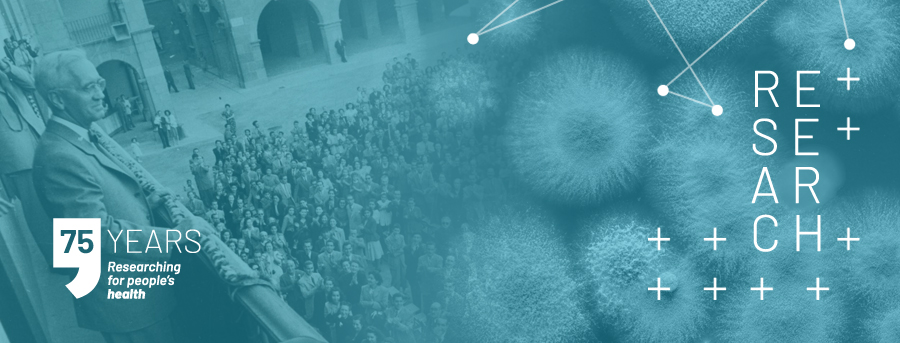

In 1948, Sir Alexander Fleming, winner of the Nobel Prize in Medicine for his discovery of penicillin, officially inaugurated the new research annex at the Hospital del Mar in Barcelona. It was a milestone in the history of Spanish science. According to contemporary accounts, this was a pioneering initiative in Spain. Of course, it can be asserted that the conception of a Department of this nature, linked to the general work of the Hospital, constitutes a completely unique achievement in Spain", stated the Gaceta Municipal in April 1950.
Heading up the new biomedical research department were two doctors, Amadeo Foz and Jordi Gras, dedicated to research in microbiology and immunology, respectively. "This Research Department fulfills a very important practical and at the same time scientific function, since it can be the starting point of a first-rate action in the field of medical research," stated the journal of the Barcelona City Council.
In Fleming's words, "A good bacteriological institute was absolutely necessary for the efficient work of a modern hospital, especially an infectious diseases hospital", as was the case in Barcelona. "It is like
what happens in a football team: if the players know that there is a reliable goalkeeper behind them, they play with more confidence and can
therefore give their best." And he concluded: "Today we are inaugurating a new bacteriological institute, a building worthy of the great use it will be put to. But a building is not everything. It makes things easier if you have space and good equipment to work with, but the quality of the work depends on the quality of the workers." Fleming was convinced that in the future "the city of Barcelona will still be as proud of its bacteriological institute as I am today, proud to be able to attend its opening."

© Institut Hospital del Mar
d'Investigacions MèdiquesLegal Notice and Privacy Policy | Cookie Policy | Site Index | Accessibility | Find Us | Contact